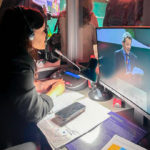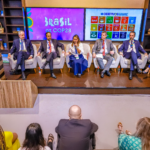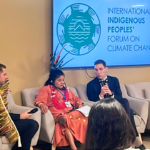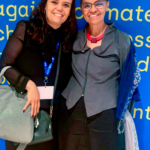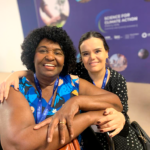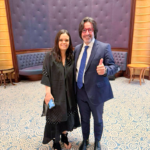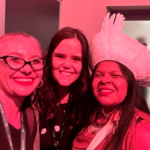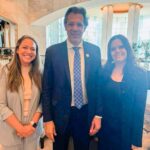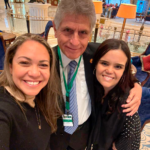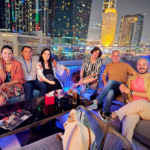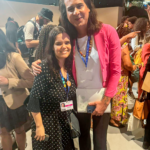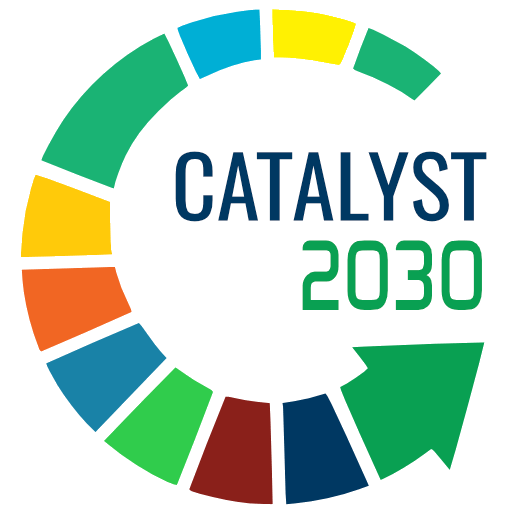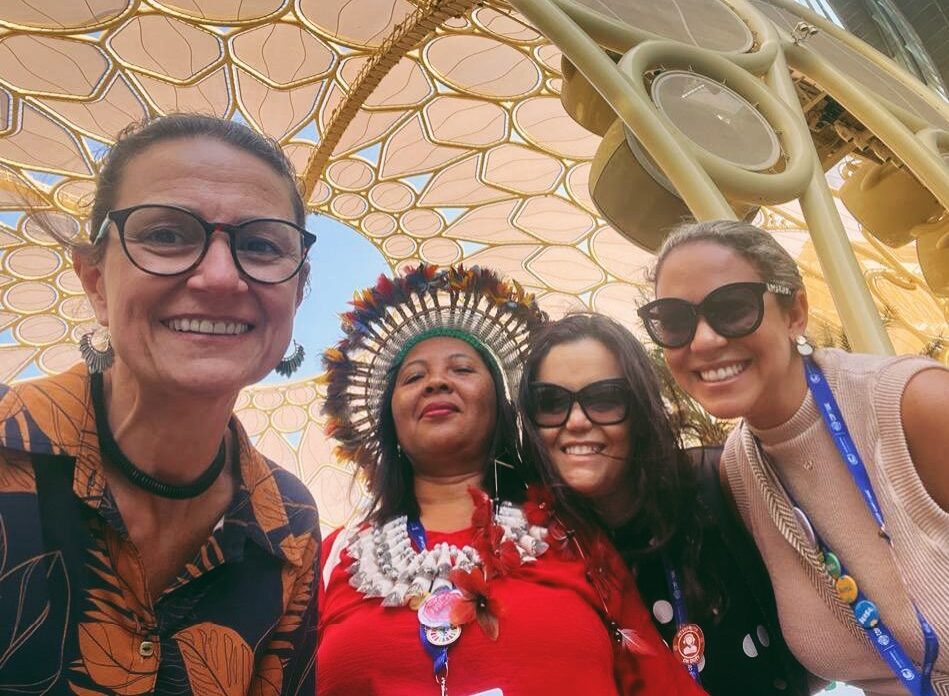
The whole world had its eyes on COP 28. This is the 28th edition of the Conference of the Parties to the United Nations Framework Convention on Climate Change (UNFCCC). This year, the big meeting took place from November 30 to December 12, 2023 in Dubai, United Arab Emirates.
The largest delegation of the event was made up of Brazilians, with more than 3,000 participants. A collective full of representativeness, including Anna Ferreira, Sustainability Consultant at Raízes, who acted as one of the Interpreters of the Conference.
The event is part of a series of annual meetings in which member countries discuss and negotiate global actions to address climate change.
The COP is the supreme decision-making body of the UNFCCC and brings together representatives of governments, non-governmental organizations (NGOs), United Nations (UN) agencies, and other stakeholders. The event is part of a series of annual meetings in which member countries discuss and negotiate global actions to address climate change.
The UNFCCC was adopted during the Earth Summit in Rio de Janeiro in 1992 and entered into force in 1994. The main objective is to assess progress on action against climate change and negotiate additional agreements to strengthen the global response to the problem.
Each of the 12 days of the conference was dedicated to the discussion of a specific theme, including health, recovery, peace, finance, trade, gender equality and responsibility, energy and industry, transitions, Indigenous peoples, multilevel action, traffic, urbanization, youth, children, education, skills, nature, land use, and oceans.
Anna – who here at Raízes had functions focused on the international part, assisting in the translation of media content and proposals into English and Spanish and the Environment, Sustainability, and B Corp Recertification committees – told us a little about the incredible experience of being part of the Brazilian delegation. Check out the interview below:
Raizes: How has the experience of participating in COP28 been?
Anna Ferreira: Wonderful and a great eye-opener about what is being done and what still needs to be done. I confess that I had some experiences that showed me that many things are not as we imagine… At the tables where the biggest decisions are made, we still see many white European men, but there is undoubtedly movement and greater articulation with minorities and native peoples.
What was your favorite talk so far at COP 28?
Many! The plenary session in which President Lula called Minister Marina Silva on the main stage, which I had the opportunity to attend with the (female) advisors of the minister I met at the Brazil Pavilion, moved us. I also interpreted a panel at Anmiga‘s at the Women’s and Gender Constitution Pavilion (WCG) on Brazilian Indigenous Women’s Leadership, and this one was also quite impactful and powerful.
At COP 27 we saw that Brazil was once again a protagonist in the Global Climate Agenda, how do you see Brazil’s participation in COP 28?
AF: We are officially the largest delegation present, with more than 3,000 participants. There are students, indigenous leaders, indigenous peoples, quilombola representatives, riverside communities, and young people, and we also had the presence of the Minister of Finance, apparently for the first time. There is a lot of participation and attention given to the Amazonian countries. And people I’ve spoken to from the French, British, American, and other bodies within the U.N., all have an excellent impression of the current government.
A French delegate told me that Europeans still thought that saving the planet was only about saving trees, and that President Lula and his government, through the Ministry of Indigenous Peoples, for example (Minister Sonia Guajajara was appointed as Head of the Brazilian Delegation to COP 28) showed that, in fact, this also is, above all, about saving people. He, for example, didn’t even know people were living in the forest and apologized for his ignorance. He also said that the president’s “place of speech” helps and that it is much easier for the countries of the global south (a term used in postcolonial and transnational studies that can refer to both the Third World and the group of developing countries) to talk to each other and understand each other, without this always being done by white Western men (the ones most responsible for the current situation).
Through your perspective, as a Sustainability Consultant here at Raízes DS, what efforts do we need to make, as a society, to meet the climate agenda?
AF: More representation, without a doubt.
I think giving the lead to all those who can provide solutions, listen, give the necessary resources, and demand that large polluting companies and sectors be held accountable and/or pay for their role in the situation in which we find ourselves.
I reiterate, that indigenous peoples must be at the tables where big decisions are made. There should be a lot more representation of the global south, and whatever they ask for, we should do. Urbanism, modernity, and capitalism have created the problem, and my observation is that even we, Brazilians, know very little about the Amazon, about the leaders, projects, people, what they do, and what they need, and I imagine that if this is the case, the European, Americans, and the like, will know even less.
How has participating in COP 28 added to your professional and personal life?
AF: Very, very much! I noticed that the UN is a much whiter, more elitist, Americanized, and political organization than I thought – which was disappointing, I can’t deny. From what I have been able to witness, there is still a lot of the colonizing perception that everyone should speak English, and there is a lack of sensitivity and even resources, creating unnecessary and embarrassing situations for Latin American leaders. There has certainly been some movement in this direction, but it is still not enough.
It was beautiful to see representation everywhere as we walked through COP 28, but very few of these people were in the plenary sessions, which are primarily white and male, and where decisions are made.
I learned a lot about indigenous peoples’ struggles, and several of them mentioned that they need to be more actively consulted, not just used for photos talking about climate change. An organized collective effort must be made, listening to those who are most connected to the Earth, and know how to deal with it, and we must give them everything they need. At the same time, it is difficult to think that, for example, both this COP 28 in Dubai and next year’s COP 29 in Azerbaijan will be held in oil-producing countries, with GDPs and economies highly dependent on fossil fuels.
I understand that the Brazilian Government, Ministers Marina and Sônia, and Minister Haddad, are launching plans to ask for financing from rich countries, sovereign wealth funds, etc., which unfortunately, in the situation in which we find ourselves, is necessary, but it is sad in a way. I’m a positive person, I know we’ll adapt, and we’re resilient, but it is a shame we have gotten here to such a breaking point environmentally. May things be better by the time we are at our COP 30, in 2025, in the Amazon!
According to The Natural Conservancy (TNC), the global goal to limit the increase in the planet’s average temperature and reduce the harmful effects of climate change is 1.5°C. Protecting and restoring nature can deliver 1/3 of CO2 emission reductions. Less than 10% is the amount of climate financing currently allocated to nature-based solutions.
We need radical action that benefits the climate – and we need them now. The COP is the opportunity for the world to come to an agreement and increase its ambition for climate justice. Read our other content on the topic here.
